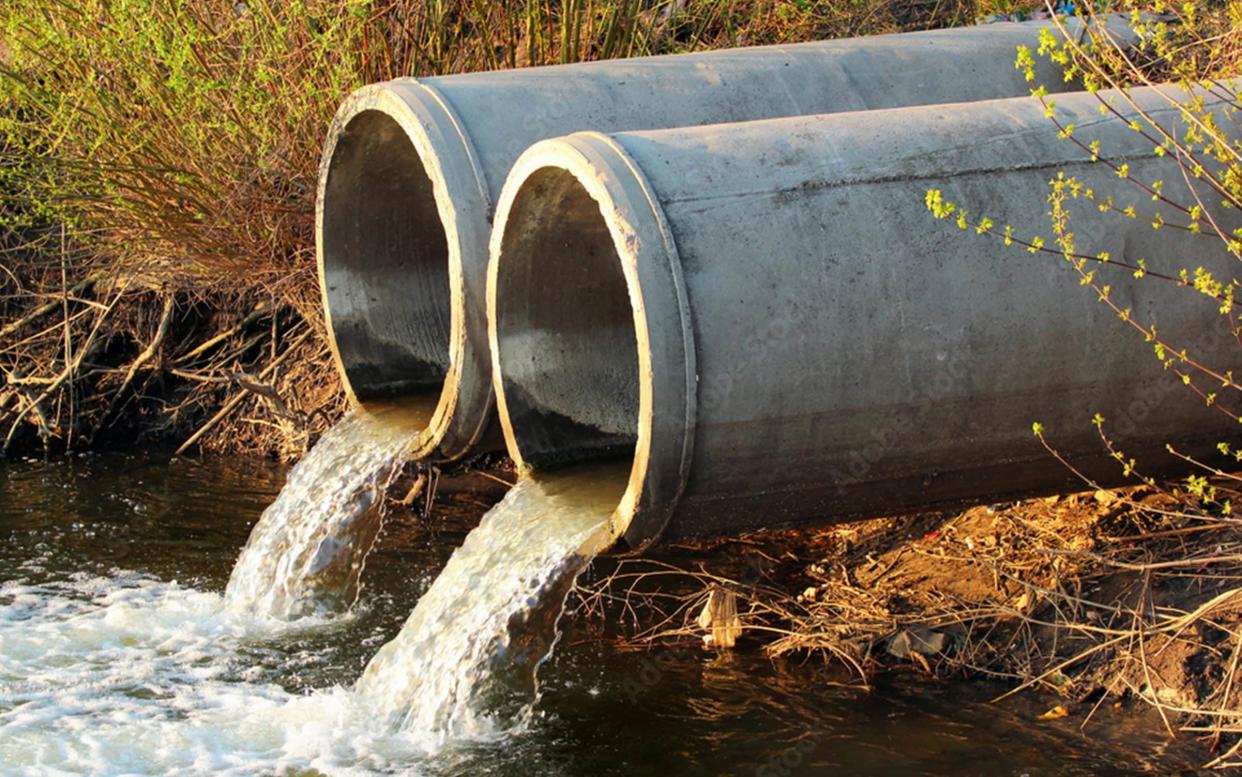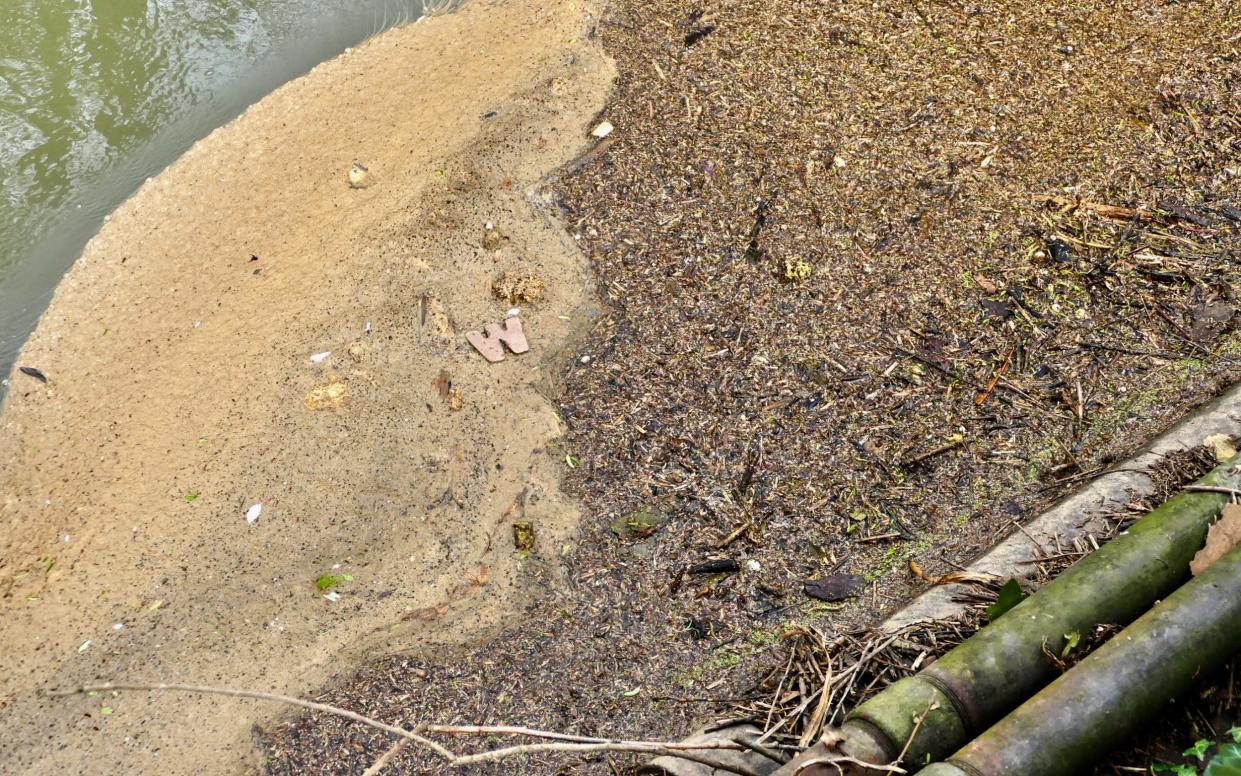Environment Agency branded ‘apologist’ for water firms over sewage spills

The Environment Agency (EA) has been accused of being an apologist for water firms after it said record sewage spills were caused by wet weather.
Campaigners called for a clear out at the environmental regulator on Wednesday, saying it was failing to curb water company pollution.
New data from the agency showed sewage was spilt 464,056 times last year, totalling more than 3.6 million hours, a record high since monitoring began.
The EA and the water industry both said the rise could be largely attributed to last year’s rainy weather, the sixth wettest in England since 1836.
There are more than 14,000 storm overflows on the water network, which are designed to let out sewage when the system becomes overwhelmed.
Campaigners argue this is only intended to happen in “exceptional circumstances”, which they say does not include steady rainfall.
They argue that industry has failed to invest in infrastructure to cope with changing weather and increasing population.
The EA, which is responsible for enforcing pollution regulations, only investigates water companies for possible illegal breaches if they spill on “dry days”.
Helen Wakeham, the agency’s director of water said that while the sewage spill data “disappointing”, it were “sadly not surprising”.
She told the BBC that the system was working as designed to stop sewage backing up into people’s homes and fixing the problem might take another 25 years.

In a statement she said the agency was “pleased to see record investment from the water sector, but we know it will take time for this to be reflected in spill data – it is a complex issue that won’t be solved overnight.”
She also said “no other country has the level of monitoring we do, with 100 per cent of storm overflows in England now fitted with a monitor”.
Responding to Ms Wakeham, river campaigner Feargal Sharkey said it was a sign that the EA was “nothing more than a lackey and an apologist for the water industry”.
He said sewage should “only ever be dumped in exceptional circumstances, in exceptional weather”, and said the EA needed “root and branch reform”.
Dave Throup, a former EA boss, said it was “very sad to see Environment Agency acting as an apologist for the water industry”.
He said: “These figures are appalling and the EA should say so, not try to make poor excuses for them and crow about increased monitoring.”
Government under pressure to act
The new figures are also likely to put pressure on the Government to act further on sewage spills, which are one of the biggest contributors to England’s rivers being in poor ecological health.
The Government has introduced several new measures to clamp down on sewage spills and tighten regulations in recent weeks, including a whistleblower portal it announced on Tuesday.
It brought forward £180 million in water company investment over the next year, and announced a ban on water company bosses receiving bonuses where a company has committed serious criminal breaches.
But it appeared to row back on plans to completely end the practice of water companies monitoring their own effluent discharges for possible breaches, announcing these would only be reduced from 2025.
The water industry has increased its calls in recent weeks for the Government to fulfil its own pledges on tackling sewage spills, including banning plastic wet wipes and allowing water companies to repair defective drains that can let in water that floods the system.
Anglian Water saw the largest increase in the number of spills recorded on its network, almost doubling on the previous year, from 16,082 to 31,623. Rainfall over East Anglia reached 734.5mm in 2023, below the England average of 1045mm.
Anglian Water said the spike was due to an increase in monitoring, from 68 per cent coverage in 2022 to 100 per cent, and record rainfall in the region.
Commenting on the overall figures, a spokesman for industry body Water UK said: “These results are unacceptable and demonstrate exactly why we urgently need regulatory approval to upgrade our system so it can better cope with the weather.
“We have a plan to sort this out by tripling investment which will cut spills by 40 per cent by 2030 – more than double the Government’s target.
“We now need the regulator Ofwat to give us the green light so that we can get on with it. The Government should do its bit by delivering the 10 commitments it has previously made, which would eliminate tens of thousands of sewage spills.”

Ash Smith, of influential campaign group Windrush Against Sewage Pollution, said the Environment Agency appeared to follow water industry lines.
“It’s time the Environment Agency recognises its board of directors is basically responsible for this and they need to clear out and start again with some fresh talent.”
He added that water companies were allowed to operate their infrastructure “so close to the wire” that spills were inevitable during rainy periods.
“The environment agency needs to get with the game. Otherwise, they should move over and let someone else in,” he said.
He said the agency should be working out “how many of those sewage works and outfalls are operating outside permits and the law, because that’s their job. Not commenting on the weather.”
Philip Dunne, the chair of the environmental audit committee said there had been “a period where the EA has been too indulgent of water companies marking their own homework.
But he added “that era is ending. We are into a new, more rigorous approach”.


